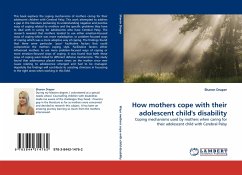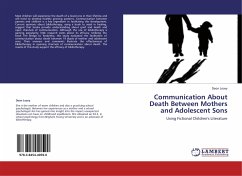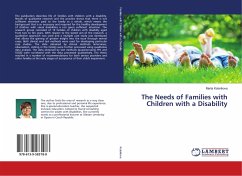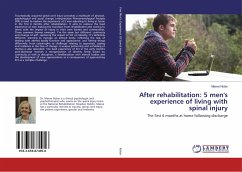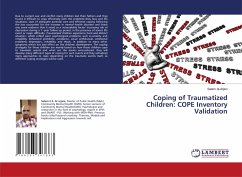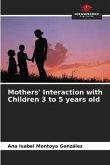This book explores the coping mechanisms of mothers caring for their adolescent children with Cerebral Palsy. This work attempted to address a gap in the literature pertaining to understanding negative and positive ways of coping related to mothers and the specific problems they have to deal with in caring for adolescents who have Cerebral Palsy. The research revealed that mothers tended to use either emotion-focused ways of coping which was more maladaptive, or problem-focused ways of coping which was a more adaptive way of coping. The findings found that there were particular poor' facilitative factors that could compromise the mothers coping style. Facilitative factors either influenced mothers to use more problem-focused ways of coping or more emotion-focused ways of coping. It was found that both these ways of coping were linked to different defense mechanisms. This study found that adolescence placed more stress on the mother since new issues relating to adolescence emergedand had to be managed. Hopefully the findings will contribute to assisting clinicians in focussing in the right areas when working in this field.
Bitte wählen Sie Ihr Anliegen aus.
Rechnungen
Retourenschein anfordern
Bestellstatus
Storno

